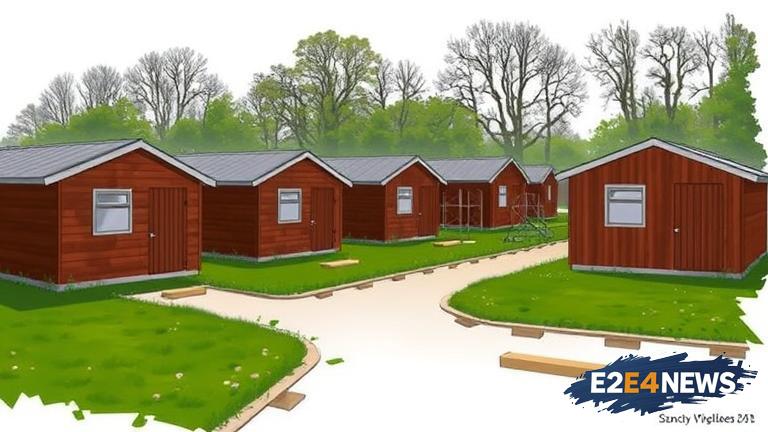The Netherlands has been facing a significant challenge in providing adequate housing for refugees. Despite efforts to secure more beds, a recent appeal has only generated 800, which is well below the target. This shortage of housing has left many refugees without a place to call their own, exacerbating an already difficult situation. The Dutch government had hoped to secure more beds to alleviate the pressure on the current refugee housing system. However, the response to the appeal has been underwhelming, with many potential hosts citing concerns about the feasibility of hosting refugees in their homes. The lack of suitable housing has led to overcrowding in existing refugee centers, which can be detrimental to the physical and mental health of the residents. Furthermore, the shortage of housing has also hindered the integration of refugees into Dutch society, as they are often forced to live in isolated areas with limited access to amenities and services. The Dutch government has acknowledged the shortfall and has pledged to continue working to secure more beds. In the meantime, refugees are being forced to seek alternative accommodation, such as hotels and hostels, which can be expensive and unsustainable in the long term. The situation is not unique to the Netherlands, as many European countries are struggling to provide adequate housing for refugees. However, the Dutch government had hoped to do better, given the country’s reputation for being a welcoming and tolerant society. The appeal for refugee housing was launched in response to the growing number of refugees arriving in the Netherlands, many of whom are fleeing conflict and persecution in their home countries. The refugees are often traumatized and in need of support and shelter, making it essential to provide them with a safe and welcoming environment. The Dutch government has committed to providing a safe haven for those in need, but the shortage of housing is hindering this effort. In addition to the humanitarian concerns, the lack of housing is also having an economic impact, as the cost of providing alternative accommodation is significant. The Dutch government is working with local authorities and NGOs to try to secure more beds, but it is an uphill struggle. The situation is complex, and there are no easy solutions, but it is essential to find a way to provide adequate housing for refugees. The Netherlands has a long tradition of providing shelter to those in need, and it is imperative that this continues. The government is exploring all options, including the use of vacant buildings and the construction of new housing units. However, these solutions will take time to implement, and in the meantime, refugees will continue to suffer. The international community is watching the situation closely, and there is a growing concern about the ability of European countries to provide adequate housing for refugees. The Netherlands is not alone in this struggle, but it is essential that the country finds a way to provide a safe and welcoming environment for those in need. The government is committed to finding a solution, but it will require a concerted effort from all stakeholders, including local authorities, NGOs, and the private sector. In conclusion, the appeal for refugee housing in the Netherlands has fallen short, with only 800 beds secured. This is a significant shortfall, and it will have serious consequences for the refugees who are in desperate need of shelter. The Dutch government must continue to work tirelessly to secure more beds and provide a safe and welcoming environment for those in need.





